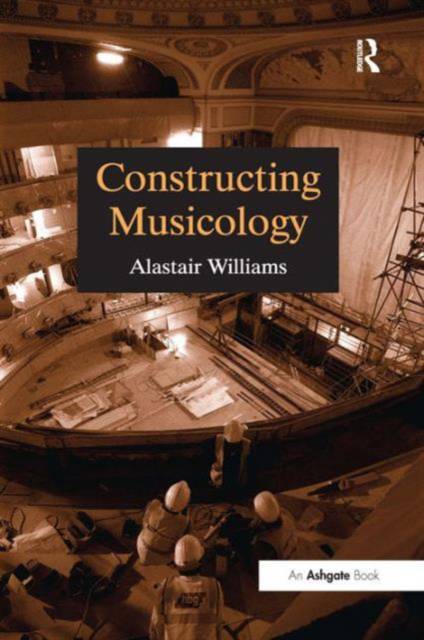
- Retrait gratuit dans votre magasin Club
- 7.000.000 titres dans notre catalogue
- Payer en toute sécurité
- Toujours un magasin près de chez vous
- Retrait gratuit dans votre magasin Club
- 7.000.000 titres dans notre catalogue
- Payer en toute sécurité
- Toujours un magasin près de chez vous
Description
This title was first published in 2001: Unlike many other academic disciplines, musicology has been somewhat reluctant to explore the possibilities that critical theory might offer to our understanding of music and the ways in which we study it. In recent years, however, both the general impact of theory on humanities research and the wider repertoires now studied on music degree courses have urged a paradigm shift in musicology. Looking at both these trends, Alastair Williams examines and explains the theoretical issues raised by different musics, including the Western canon, popular music, folk music and music by women. A theoretically informed musicology, he argues, can reflect on its own procedures and create strategies for particular problems as they arise. In this sense the book offers a musicology under construction. To appreciate how theoretical discourses function and the interests they serve, it is important to understand their roots. Chapter One begins with a presentation of traditional musicology in the context of Joseph Kerman's call for a shift from fact-finding to critical interpretation. Discussion then moves to the scrutiny of the bourgeois tradition by Adorno and Dahlhaus. Chapter Two explores Kerman's critique of structural analysis, together with the impact of poststructuralism on musicology. Awareness of new repertoire and its consequences becomes evident as the book unfolds, with Chapter Three considering music by women and examining how gender is constructed in music. Chapter Four extends this discussion to the field of popular music and the ways in which this genre negotiates identity. Challenges to the dominant values are further explored as Chapter Five looks at how non-European cultures are presented in European music and reflects on perceptions of self and other in ethnomusicology. Chapter Six charts the emergence of modern subjectivity and its formations in music, arguing that musicology should not lose sight of modernity's critical resources.
Spécifications
Parties prenantes
- Auteur(s) :
- Editeur:
Contenu
- Nombre de pages :
- 176
- Langue:
- Anglais
Caractéristiques
- EAN:
- 9780754601340
- Date de parution :
- 20-11-01
- Format:
- Livre broché
- Format numérique:
- Trade paperback (VS)
- Dimensions :
- 156 mm x 234 mm
- Poids :
- 258 g







